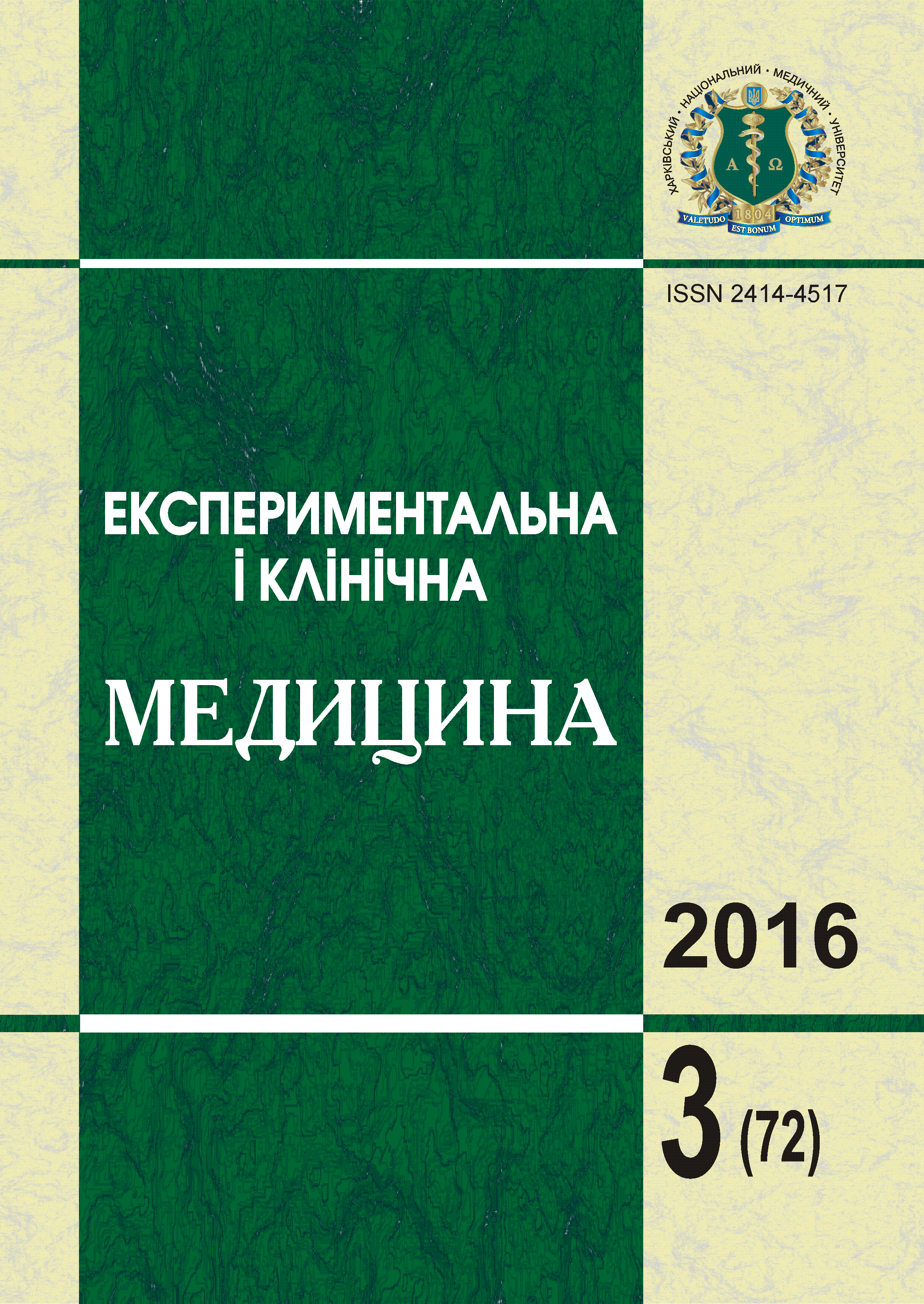Abstract
In the article results of a comparative analysis of clinical-psychopathological peculiarities are presented for patients with a good and poor medication compliance in continuous, episodic, and remitting courses of paranoid schizophrenia. In was determined that the main role in formation of a poor medication compliance in a continuous course of paranoid schizophrenia belonged to manifested negative symptoms, whereas in episodic and remitting courses this role belonged to manifested productive symptoms.References
Марута Н.А. Проблемы раннего вмешательства в психоз: фармакологические и психосоциальные технологии / Н.А. Марута // Здоров’я України. – 2014. – № 2 (29). – С. 42–43.
Мишиев В.Д. Проблема комплайенса в современной психиатрии / В.Д. Мишиев // Психічне здоров’я. – 2007. – № 1 (10). – С. 67–69.
Сидоренко Т.В. Повышение приверженности к терапии – дополнительный путь оптимизации эффективности лечения хронических заболеваний / Т.В Сидоренко // Неврологический вестник. – 2010. – Т. XLII, Вып. 1. – С. 84–87.
Шестопалова Л.Ф. Особливості терапевтичного альянсу у хворих на психічні та неврологічні розлади / Л.Ф. Шестопалова, В.А. Кожевнікова, О.О. Бородавко // Український вісник психоневрології. – 2011. – Т. 19, № 2 (67). – С. 74–76.
Fleischhacker W.W. Adherence/compliance: a multifaceted challenge / W.W. Fleischhacker // World Psychiatry. – 2013. – Vol. 12 (3). – P. 232–233.
EPA guidance on the quality of mental health services / W. Gaebel, T. Becker, B. Janssen et al. // Eur. Psychiatry. – 2012. – Vol. 27 (2). – P. 87–113.
Kao Y.C. Compliance and schizophrenia: the predictive potential of insight into illness, symptoms, and side effects / Y.C. Kao, Y.P. Liu // Compr. Psychiatry. – 2010. – Vol. 51 (6). – P. 557–565.
Uzun S. Antipsychotic treatment in patient with schizophrenia – the question of compliance / S. Uzun, O. Kozumplik, M. Jakovljevic. – Prague: 20th European Congress of Psychiatry, 2012. – P.386 / CD.
Модель организации социально-психологической помощи пациентам, страдающим шизофренией : метод. рекомендации / Т.А. Солохина и др. – М.: МАКС Пресс, 2012. – 32 с.
Морозов П.В. Приверженность терапии – мотивированность пациента / П.В. Морозов // Психиатрия и психофармакотерапия им. П.Б. Ганнушкина. – 2010. – № 04. – Режим доступа: http://conmed.ru/magazines/psikhiatriya
i_psikhofarma koterapiya_im_p_b_ganushkina/216307/216304/.
Relationship between therapeutic modalities and treatment compliance in schizophrenia / O. Zouari, H. Zalila, S. Arfaoui et al. – Prague: 20th European Congress of Psychiatry, 2012. – P.1333 / CD.
Мосолов С.Н. Шкалы психометрической оценки симптоматики шизофрении и концепция позитивных и негативных расстройств / С.Н. Мосолов; – М., 2001. – 238 с.
Шкала медикаментозного комплайенса. Новая медицинская технология / Н.Б. Лутова, А.В. Борцов, А.Я. Вукс, В.Д. Вид. – СПб.: Изд-во НИПНИ им. В.М. Бехтерева, 2006 – 35 с.
Derogatis L.R. The SCL-90-R / L.R. Derogatis // Clinical Psychometric Research. – Baltimore, 1975. – P. 1–134.
Kay S.R. The positive and negative syndrome scale (PANSS) for schizophrenia / S.R. Kay, A. Fiszbein, L.A. Opler // Schizophr. Bull. – 1987. – Vol. 13. – P. 261–276.
Rosenheck R. Progress in compliance research and intervention: a commentary / R. Rosenheck // World Psychiatry. – 2013. – Vol. 12 (3). – P. 227–229.
